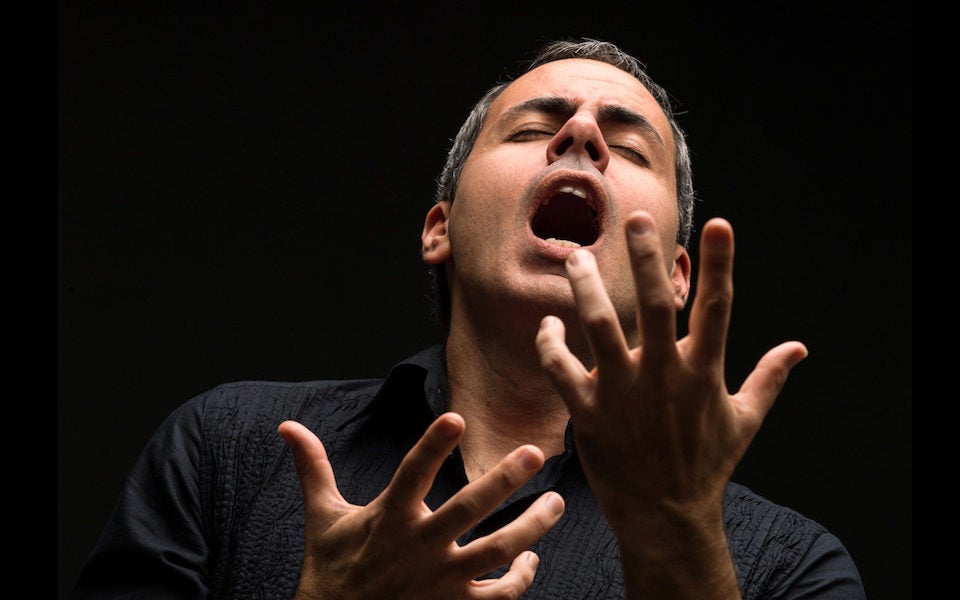
It’s hard out there for a cantor. On any regular week you have to lead a congregation in prayers, hopefully with a nice voice and a pleasing style. And if that pressure weren’t bad enough, then the High Holidays come around, and you feel like you’re being watched by every Jew within a 100-mile radius. Fortunately, there’s a prayer for that. It’s called the Hineni.
No one knows where the Hineni prayer came from–it was first recorded in 1560 in Germany, but may be much older. In it, the cantor or prayer leader says, I am not worthy. I’m terrified. But this community has trusted me to help them pray, so please, God, don’t shut me out, even though I’m a sinner, too.
Hineni is a private prayer from the leader to God, so you might think it would be said silently to oneself, but instead it has become the cantor’s showstopper, an opportunity for them to strut their musical stuff in a decidedly not-very-humble way. There are operatic and intense versions of “Hineni” all over YouTube and Spotify, and it’s often part of the audition process for a cantor.
It acknowledges how impossible of a task rabbis and cantors face: to pray on behalf of a room full of sinners all hoping to be inscribed in the Book of Life.
JTA has documented Jewish history in real-time for over a century. Keep our journalism strong by joining us in supporting independent, award-winning reporting.





